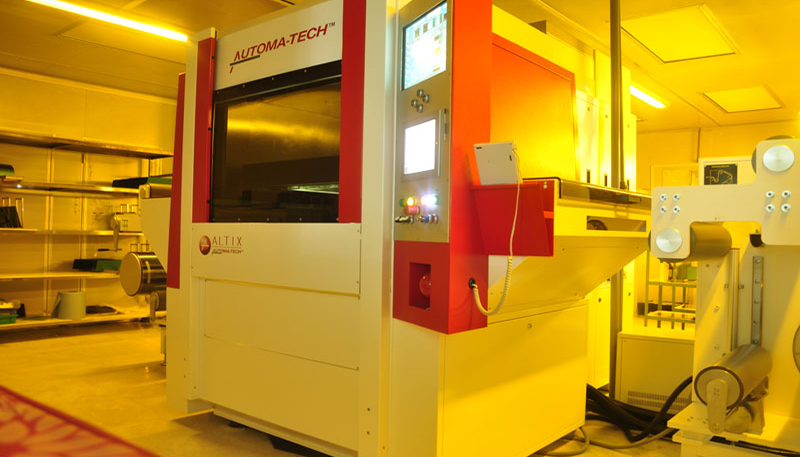
Etching stainless steel can be done through a controlled chemical reaction, usually using an acid-based solution to create patterns or designs on the metal. Here's a commonly
used method involving ferric chloride, which is a safer option than more aggressive acids like nitric or hydrochloric acid:
### Materials Needed
1. **Ferric Chloride Solution** (a common etching compound, available at hardware or electronics stores)
2. **Distilled Water** (for diluting, if necessary)
3. **Protective Gear** (gloves, goggles, apron, mask)
4. **Plastic or Glass Container** (do not use metal containers as they will react with the etching solution)
5. **Resist Material** (e.g., vinyl stickers, permanent markers, or specialized resist pens for design)
6. **Clean Stainless Steel Surface** (thoroughly cleaned with acetone or isopropyl alcohol)
### Process
1. **Prepare the Stainless Steel**:
- Clean the metal thoroughly to remove oils, dust, or any contaminants that could prevent the resist from adhering.
2. **Apply the Resist**:
- Apply your design to the stainless steel using a resist (vinyl stickers, special resist pens, or ink from a laser printer transferred using heat).
- Ensure the resist covers all areas you don’t want to etch.
3. **Prepare the Etching Solution**:
- Ferric chloride is often used in a diluted form for stainless steel. If needed, dilute it with distilled water to a 1:1 ratio (one part ferric chloride to one part water).
- Always add ferric chloride to water, not the other way around, to avoid a sudden reaction.
4. **Etching**:
- Submerge the stainless steel in the solution, or use a brush to apply the solution to the metal surface.
- Allow it to etch for around 10-30 minutes, depending on the depth and definition desired.
- Check periodically for progress and adjust time as necessary.
5. **Rinse and Clean**:
- Once the etching is complete, rinse the piece thoroughly in water.
- Remove the resist material to reveal the etched design.
6. **Neutralize and Dispose of the Solution**:
- Ferric chloride can be neutralized with baking soda before disposal, but always follow local regulations for safe disposal of chemicals.
### Safety Tips
- Work in a well-ventilated area or outdoors.
- Wear appropriate protective equipment.
- Keep the ferric chloride away from skin and eyes.
Contact: andy_Lai
Phone: 18938693450
E-mail: yw9@zldsmt.com
Add: Building A3, Huafa Industrial Park, Fuyong Town, Fuyuan Road, Fuyong Town, Baoan District, Shenzhen,China